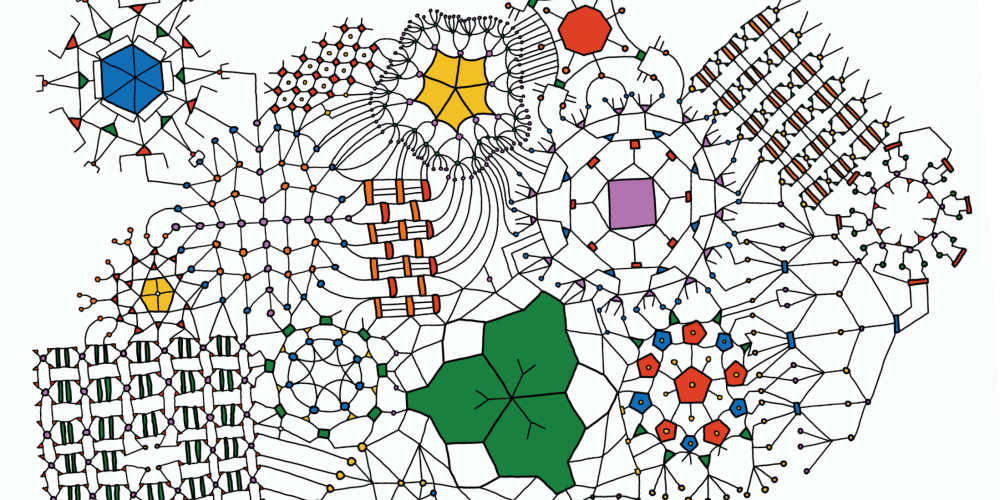Stieltjesprijs 2021-2022 for Freek Witteveen: how to understand physical systems in the language of quantum information theory?
Freek Witteveen, who did his PhD research at QuSoft, has been awarded the Stieltjesprijs for the academic year 2021-2022. In his work he has contributed to the understanding of how to use quantum information theory to better describe many-body physics.
Source: QuSoft, March 3, 2023

A key question that is studied at QuSoft is the basic question “What is information?” and how does the essence of information change when we think quantum rather than classical?
Another important question is to understand what computation is and get a better understanding of how quantum computation differs from classical computation. There is also a different direction in this research program, which is to take insights from studying quantum information, and trying to apply them as a theoretical tool to improve our conceptual understanding of many-body physics.
One of the main hopes for quantum computation is to use quantum computers to simulate complex quantum systems, consisting of many particles (so-called many-body physics). While we in principle know the equations that we need to solve in order to get a description of such a system, in practice this is very hard even with the use of a classical (super)computer. A quantum computer has the potential to overcome certain of the limitations of classical computers. However, as of yet it is still unclear for what kind of physical systems we may hope to get good simulations where classical methods fail. Freek thinks that the subfield of “quantum simulation is likely the most important application of a quantum computer” and he tries to contribute to its development.
During his PhD research Freek has done research motivated by three fundamental questions, solving technical questions related to each of these domains:
- What kind of quantum many-body state can be simulated by a quantum computer? Can we relate the design of such quantum circuits to physical principles?
- If we have a quantum system, how does information spread through the system? There are bounds to how fast information can travel. What are the implications of such bounds? A classical analogy is a stone thrown in a pond: the information that the stone fell in the pond ripples through the water in the form of waves. What are the equivalent ‘quantum waves’?
- What happens to quantum information in quantum gravity? On theoretical grounds it seems that the entropy of a black hole (counting the amount of information present) scales like the area instead of the volume. This means that that black holes could really be two-dimensional (think of a surface enclosing the black hole) instead of three-dimensional objects. A far-reaching generalization of this idea is the proposal of holographic quantum gravity, in which a universe with gravity is equivalent to a quantum theory living on its boundary. This is closely related to information theory, since an important question is how information is encoded in holography. As a thought experiment you can imagine throwing a book into a black hole. Because black holes radiate energy by a quantum mechanical process, after a long time the black hole has evaporated. However, it looks like the radiation contains no information. Is it possible to reconstruct what was written in the book from the radiation? If not, this is very surprising since we do not expect that it is possible for information to fundamentally disappear, and this problem is known as the black hole information paradox. Recently there has been significant progress in understanding the dynamics of quantum information in holographic quantum gravity and the black hole information paradox.
Around these three themes there are many fascinating unanswered questions, which will hopefully see progress in the near future, requiring interdisciplinary research between physics, mathematics and computer science and collaboration between quantum information scientists and theoretical physicists.
More information
Freek Witteveen was a PhD student of the University of Amsterdam and Korteweg-de Vries Institute for Mathematics (UvA). Freek was part of QuSoft, hosted at CWI, the Centrum Wiskunde & Informatica, Amsterdam. His research was supervised by former QuSoft member Michael Walter. Before his PhD, Freek studied at UvA, and worked for a year at the University of Utrecht.
He is now working as a Postdoctoral fellow in Copenhagen (@QuMath), doing further research on the organizing principles of many-body physics, using the mathematics of tensor networks.
The other winner of the Stieltjesprijs 2021-2022 for the best mathematical PhD thesis was Sophie Huiberts, former PhD student of CWI. In her research Huiberts gained new mathematical insights on popular optimization methods, which have many applications, see the news item on the Stieltjesprijs on the CWI website.
